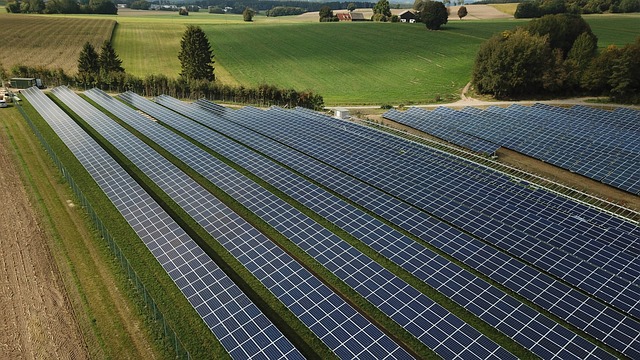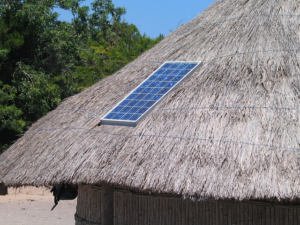
Hanwha Solutions built this solar energy production site in Texas. Photo courtesy of Hanwha Solutions
SEOUL, Jan. 30 (UPI) — South Korea’s Hanwha Solutions announced it has formed a partnership with U.S. tech giant Microsoft on solar energy.
Under the agreement, announced Thursday, the companies will work on various solar energy projects with the goal of helping Microsoft become carbon negative by the decade’s end.
Hanwha Q cells, an affiliate of Hanwha Solutions, will supply solar panels with a capacity of at least 2.5 gigawatts and related services to selected solar sites, which Microsoft has contracted.
The facilities would be able to power more than 400,000 homes, according to Hanwha.
“We’re striving to build and deliver clean, turnkey energy solutions, including made-in-America ones, and this partnership with Microsoft will help accomplish such a vision,” Hanwha Q Cells CEO Lee Koo-yung said in a statement.
Microsoft President Brad Smith said building a resilient solar energy supply chain is essential to advancing a global green energy economy.
“Microsoft’s partnership with Q Cells will help make this vision a reality by bringing innovation and investment to rural Georgia,” he said in a statement.
“As one of the world’s largest purchasers of renewable energy, this work will help bring more solar energy to the grid, faster.”
Earlier this month, Hanwha disclosed plans to invest $2.57 billion toward expanding its solar energy production sites and constructing a new solar energy parts manufacturing factory in Georgia.
Hanwha expects the U.S. solar panel industry to grow by around 20%, in line with the government’s push to adopt more clean energy sources and reduce carbon emissions.
Microsoft has vowed that, by 2025, it would replace its power grid electricity with renewable energy and that it would also realize carbon neutrality by 2030.
“Data centers of big tech companies consume a lot of electricity. Hence, they’re focusing on renewable energy. More and more such companies will tap into solar power projects,” HMC Investment Securities analyst Kang Dong-jin told UPI News Korea.
“From the perspective of Hanwha, building a plant in the U.S. is a big commitment. But the company will also receive huge tax credits thanks to the investment coming under the advanced manufacturing production credit system,” he said.
New tax incentives for manufacturing investment in the United States’ renewable energy sector were introduced alongside the Inflation Reduction Act, which was signed by U.S. President Joe Biden last August.






